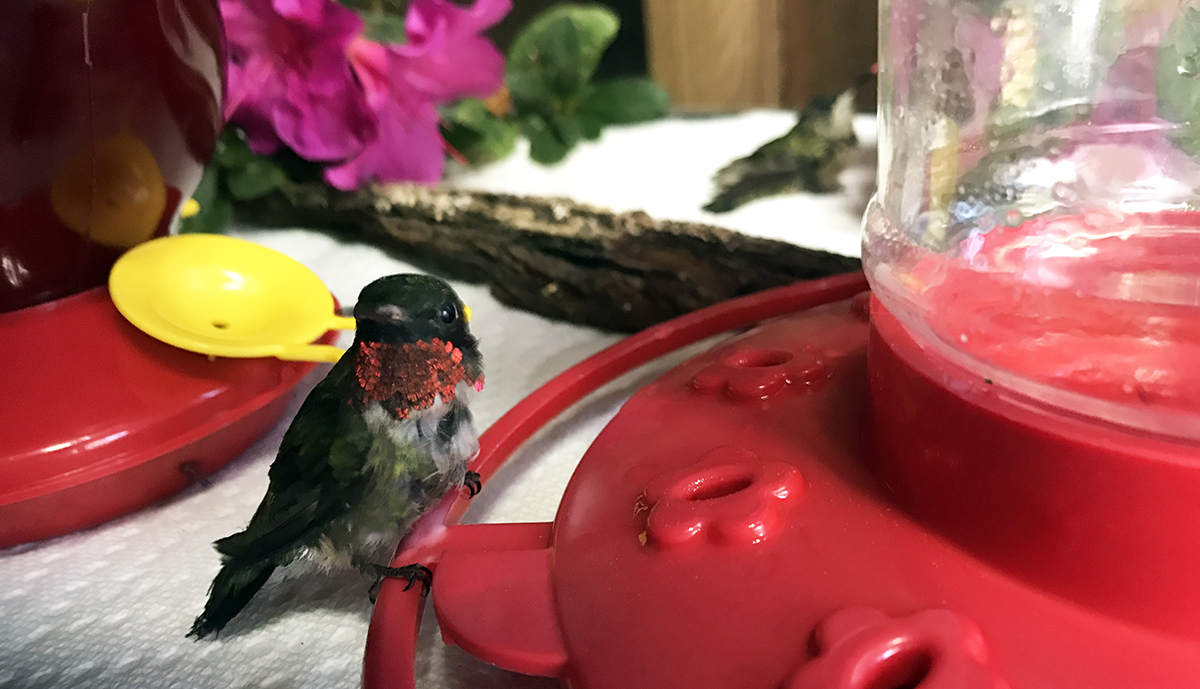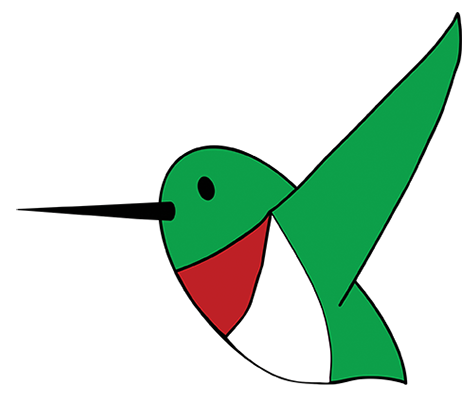Happinest is rehabbing hummers.
It's not uncommon for our songbird rehabber, Sherry Teas, to intake hummingbirds that are lethargic and unable to fly, yet showing no signs of physical injury. One thing Sherry has noticed with each of these hummingbirds is their red droppings and she's concerned about it.
Unfortunately, some of these hummingbirds have not survived, but the birds that have survived, typically recovered with cage rest and a healthy diet of clear sugarwater nectar and prescription protein nectar. After about 48 hours, their droppings returned to normal color and they started showing signs of improvement. From that point, the rehabbed hummingbirds continued to improve and were released 7 to 10 days later.

Why we're sharing our experience.
Here at Happinest, community awareness and education are part of our mission.
When we talk with fellow rehabbers nationwide, the tell us they are experiencing similar hummingbird cases in their own communities. When Sherry shared her concern about red nectar on facebook, we found that many bird lovers were unaware that a clear sugarwater nectar was not only a healthy alternative, but much less epensive than the red nectar they were buying in the store.
The Cornell Lab of Ornithology tells us, there is absolutely no reason to add red dyes to hummingbird nectar. Natural flower nectar is clear. Hummingbird feeders have colorful parts that attract hummingbird regardless the color of nectar inside. There are several flowers and bushes that are known to attract hummingbirds, too! Learn more about feeding hummingbirds from The Cornell Lab.
We recommend clear sugarwater nectar.
As long as we have red-dropping rehab cases, we will warn against the use of red nectar. Please join us. Together, we can make a difference.
Clear Sugarwater Nectar
A healthy hummingbird feeder recipe.
- Boil 4 cups water for 3 minutes
- Stir in 1 cup pure granulated sugar
- Cool to room temperature
- Store remaining mix in fridge for 7 to 10 days.
Do not substitute sugar. Do not add red nectar, red dye, honey or anything else.
Boiling water not only kills most bacteria and viruses, it also removes many other microorganisms and some chemicals.
If you choose to use non-boiled water, please discard all nectar after 24 hours.
Recommended Feeder Schedule
- 70°-84°F: Clean feeder and replace nectar every 3 days
- 85°-87°F: Clean feeder and replace nectar every 2 days
- 88°F and up: Clean feeder and replace nectar every single day.
More about feeding hummingbirds...
- Cloudy nectar indicates bacteria, which is harmfull.
Discard nectar, clean the feeder and add fresh clear nectar. - Black residue indicates mold, which is harmful.
Discard nectar, clean the feeder and add fresh clear nectar.

